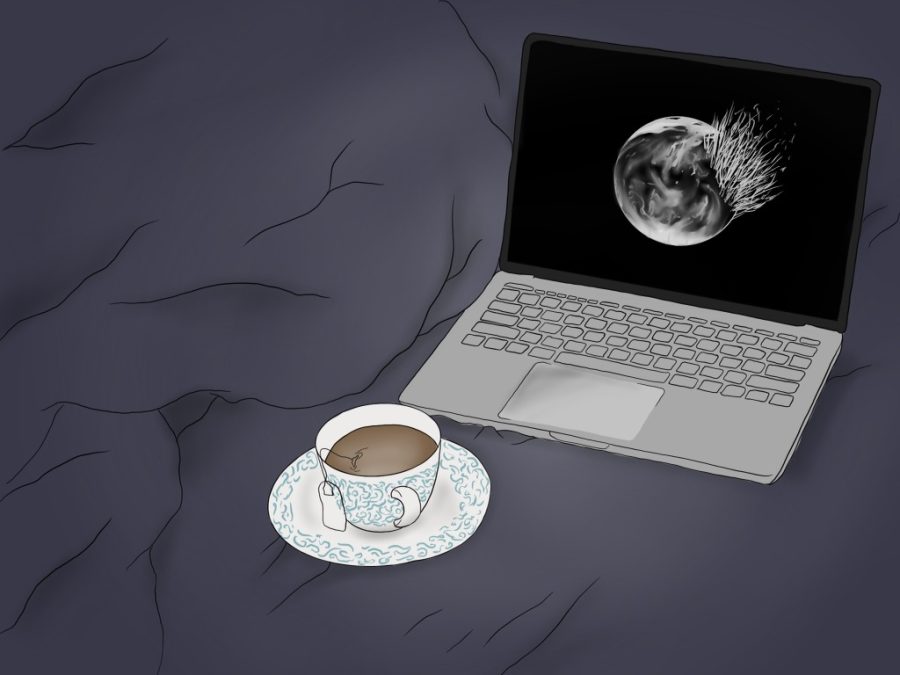Off the Radar: ‘La Haine,’ a harsh reality transcending time and place
“Off the Radar” is a weekly column surveying overlooked films available to students for free via NYU’s streaming partnerships. “La Haine” is available to stream on Kanopy.
“La Haine” is a French film depicting police brutality that premiered in 1995. The film is available for free via NYU’s streaming partnerships. (Staff Illustration by Aaliya Luthra)
April 1, 2022
“La Haine” (1995), directed by Mathieu Kassovitz, is a French film that transcends social and political geographies as well as time. Although the film takes place in France during the 1990s, the depiction of police brutality is eerily applicable to places such as the contemporary United States.
The film takes place after a riot in the projects outside of Paris. The riot was in response to police brutality toward an Arab teen, Abdel, who fell into a coma from his injuries. Kassovitz notably introduces the film with archival footage of the actual ’90s riots that occurred in the Paris projects, serving as a reminder of the reality within which a fictionalized world is rooted. Kassovitz even references cases in the beginning sequence that inspired his script, such as the murder of student Malik Oussekine by riot police. It immediately throws the viewer into the political atmosphere, enjambed by the lyricism of Bob Marley’s “Burnin’ and Lootin’.”
During the riot, a cop loses his gun, which Jewish teenager Vinz (Vincent Cassel) finds and keeps. Vinz, enraged by the injustice done to Abdel, vows to kill a cop in retribution if Abdel dies. His friends Saïd (Saïd Taghmaoui) and Hubert (Hubert Koundé), of Arab and Afro-French descent, respectively, are repelled by the gun, attempting to avoid the trouble it inevitably summons.
Vinz’s attachment to the gun is a rumination on what it means to take back power. Both the conditions he lives within, in the low-income housing projects, and the marginalized racial identities of his friends makes this a defiant act of defense against the forces that deeply wound their communities.
Vinz is a ticking time bomb, consistently motioning a gun with his hands in an imaginative gaze. But he craves humanity — simple human decency in a world that beats down on his community with extreme force. We witness an example of this, knowing he’s secretly wielding a gun when he attempts to visit Abdel at the hospital. He wants to be there for a friend, but is quickly shut down by an officer, which instigates his unruly temper — a flare ignited by the violence. It’s not difficult to empathize when Vinz is driven to right an institutionalized wrong.
The brutality in this film at times seems senseless, but it serves as a reminder of the profiling endured by the communities in the real world that these boys represent. At one point, Hubert and Saïd are captured by police in Paris and undergo a torture sequence in the presence of a rookie cop. Two police officers teach the rookie how to stop the abuse in time and remark on how difficult it is to practice self-control. It’s despairing to know we’re witnessing a parallel to reality. Though characters like Hubert claim there are good cops, it’s incidents like these in the film where Vinz’s truth rings clear. As a response to a familiar officer insisting he’s there to protect them, Vinz bites back with, “Yes, who protects us from you?”
Though political themes are rampant in “La Haine,” Kassovitz doesn’t attempt to deconstruct the “whys,” but rather chooses to portray these realities as they are. Interlaced in the film are timestamps counting down, heightening the tension of an impending detonation. The countdown is a marker of these characters’ sustained survival, and it makes the audience aware of the grim destruction ahead. The explosion is at the apex of systemic poverty and racism at the hands of the justice system. The characters do not conquer such tribulations; they end up succumbing to these cycles. It’s harsh and uncomfortable, but it’s the truth.
It’s not difficult to see today how timeless “La Haine” is. Within the United States, we see parallels with the murder of George Floyd, which sparked outrage and shed light on the systemic abuse perpetrated by the police. These events showed that marginalized communities still feel we are living in that countdown. How long until we can gain a redemptive arc?
In the end, “La Haine” reflects society’s continual degradation within its structures, it is a contemplative on the affirmation, “So far, so good.” But as the film says, “How you fall doesn’t matter. It’s how you land.”
Contact Amira Aboudallah at [email protected].
























































































































































